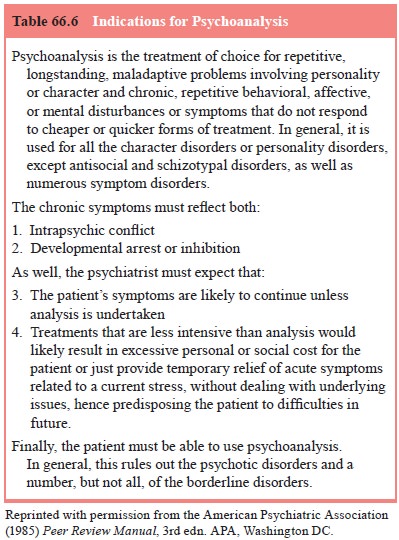Chapter: Essentials of Psychiatry: Individual Psychoanalytic Psychotherapy
Psychoanalytic Psychotherapy: Therapeutic Alliance
Therapeutic
Alliance
A great
deal of research in the outcome of psychoanalytic psycho-therapy has focused on
the importance of the therapeutic alliance (Docherty, 1985). Increasing
appreciation for the role of support-ive factors, such as the rapport between
the patient and therapist that constitutes the therapeutic relationship, has
balanced the earlier and more narrowly defined position that attributed
thera-peutic success exclusively to insight resulting from specific
inter-pretive activity. The clinical consequences of this appreciation of the
helpfulness of nonspecific factors have been the psychoana-lytic
psychotherapist’s paying much greater attention to the ini-tial phases of
engaging the patient in psychotherapy and a greater respect for those positive
and negative factors that the therapist brings to the working relationship.
Currently, approaches to psy-choanalytic psychotherapy hold that the
psychiatrist’s person-ality and interventional technique have equal influence
on the therapeutic process. In essence, the contemporary view is more dyadic,
and places greater importance on the contributions of the therapist (both the
conscious and the unconscious), as well as of the patient with respect to
progress and impasse in the psycho-therapeutic process.
Contemporary
psychoanalytic psychotherapists still em-phasize elucidation of the
unconscious, especially within the transference, and still use interpretation
as a primary clinical intervention, but recognizes more fully the important
role of the mutual emotional engagement of therapist and patient and the
curative role of this relationship in addition to other supportive factors.
They adhere to a much broader perspective on human development and psychiatric
disorders. Psychological problems

can
result not only from early intrapsychic conflict but also from developmental
deficits or failures as well as from psychological trauma (Table 66.6).
Related Topics